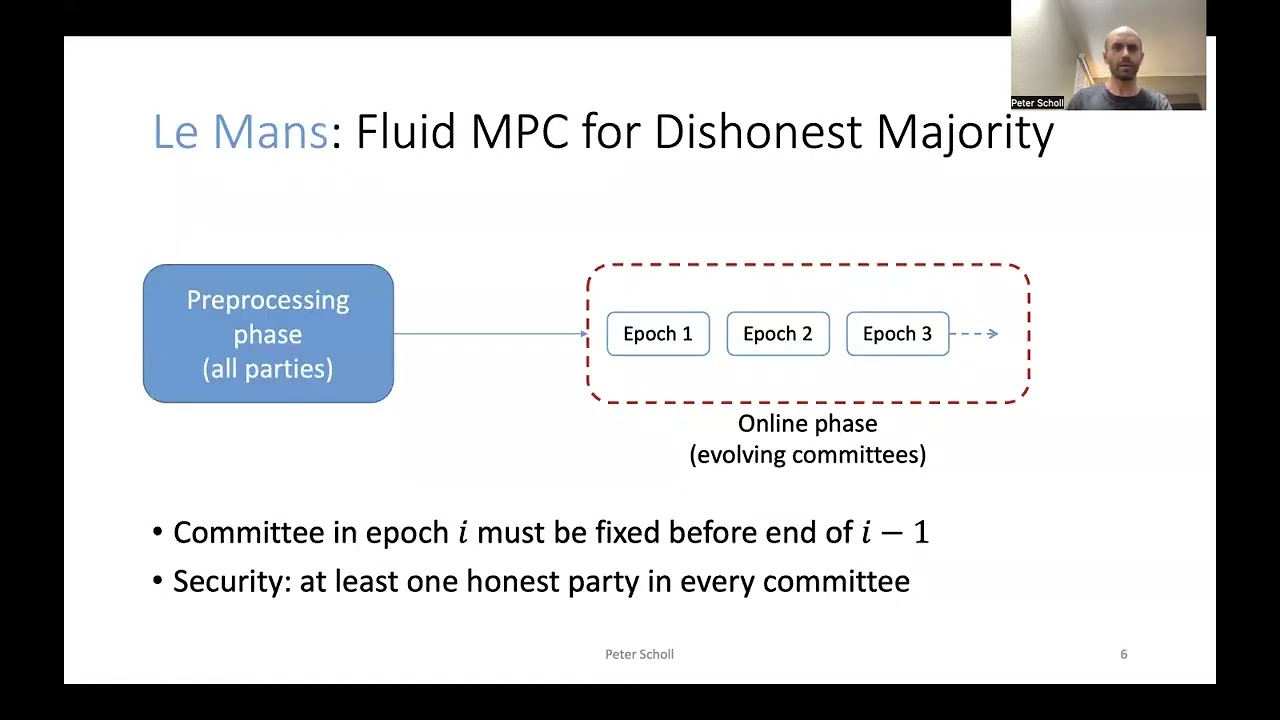Welcome to the resource topic for 2021/1579
Title:
Le Mans: Dynamic and Fluid MPC for Dishonest Majority
Authors: Rahul Rachuri, Peter Scholl
Abstract:Most MPC protocols require the set of parties to be active for the entire duration of the computation. Deploying MPC for use cases such as complex and resource-intensive scientific computations increases the barrier of entry for potential participants. The model of Fluid MPC (Crypto 2021) tackles this issue by giving parties the flexibility to participate in the protocol only when their resources are free. As such, the set of parties is dynamically changing over time. In this work, we extend Fluid MPC, which only considered an honest majority, to the setting where the majority of participants at any point in the computation may be corrupt. We do this by presenting variants of the SPDZ protocol, which support dynamic participants. Firstly, we describe a universal preprocessing for SPDZ, which allows a set of n parties to compute some correlated randomness, such that later on, any subset of the parties can use this to take part in an online secure computation. We complement this with a Dynamic SPDZ online phase, designed to work with our universal preprocessing, as well as a protocol for securely realising the preprocessing. Our preprocessing protocol is designed to efficiently use pseudorandom correlation generators, thus, the parties’ storage and communication costs can be almost independent of the function being evaluated. We then extend this to support a fluid online phase, where the set of parties can dynamically evolve during the online phase. Our protocol achieves maximal fluidity and security with abort, similarly to the previous, honest majority construction. Achieving this requires a careful design and techniques to guarantee a small state complexity, allowing us to switch between committees efficiently.
ePrint: https://eprint.iacr.org/2021/1579
Talk: https://www.youtube.com/watch?v=tnFPgD2cnUs
Slides: https://iacr.org/submit/files/slides/2022/crypto/crypto2022/361/slides.pptx
See all topics related to this paper.
Feel free to post resources that are related to this paper below.
Example resources include: implementations, explanation materials, talks, slides, links to previous discussions on other websites.
For more information, see the rules for Resource Topics .
